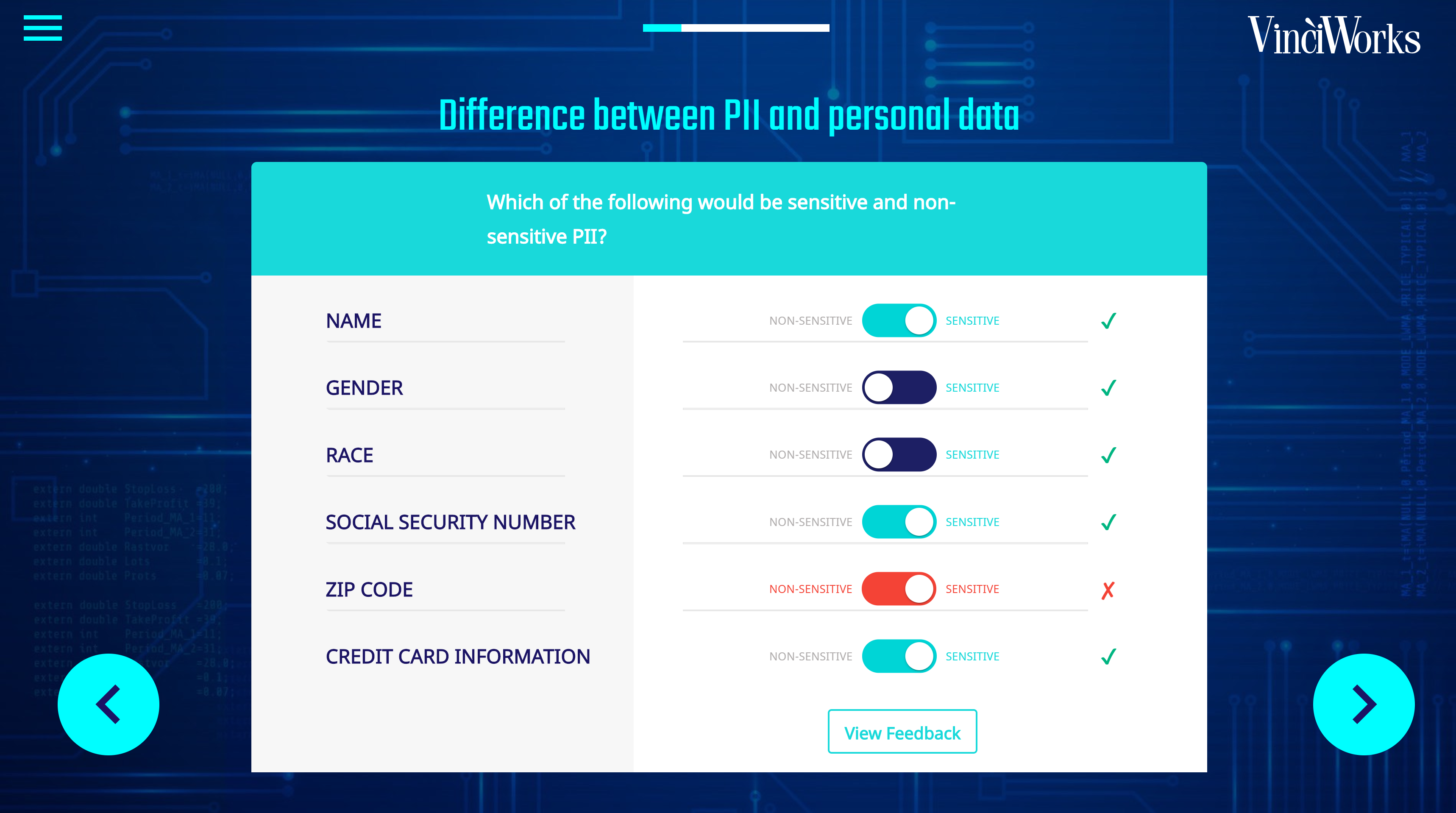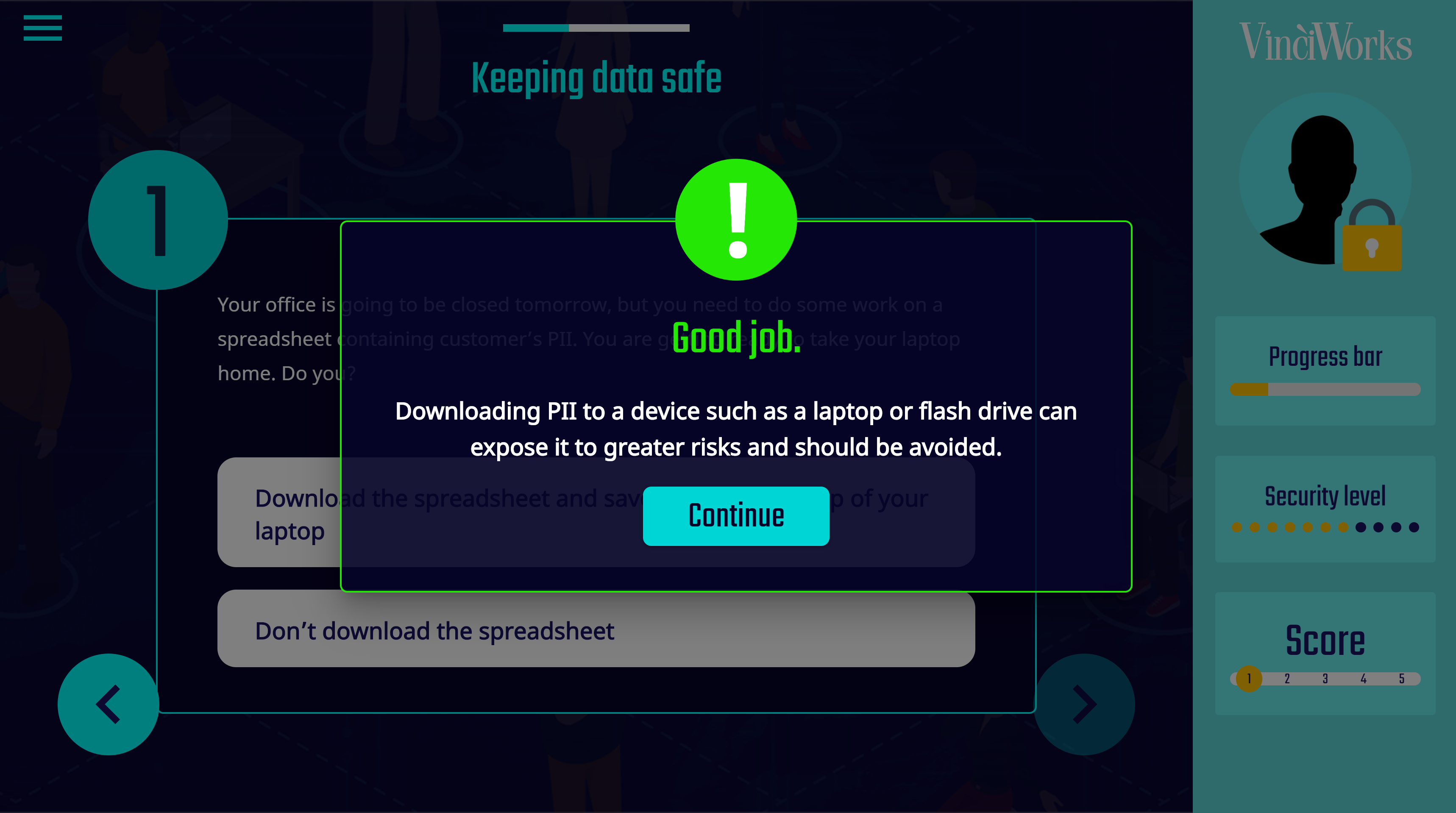
Data Privacy: Fundamentals provides all staff with a comprehensive overview of data privacy rules, policy, and legislation in the United States. The course combines short bursts of learning with practical scenarios and real-life case studies to ensure all staff know how to safely and securely work with data. Interactive scenarios test and score data privacy knowledge as you progress through the training.
A unique, experiential approach to data privacy, the Fundamentals course focuses on the practical knowledge and straightforward behaviors all staff need to know to keep data safe and secure. The course can be purchased either as a stand-alone course or as part of our data privacy training suite.
This course is designed for all staff in an organization and covers all the key elements of data privacy including:
- What is data?
- Difference between PII and personal data
- Basic privacy rules
- Keeping data safe
- Data classification
- Protecting information
- Collecting information
- Sharing information
- Third parties
- Data privacy legislation
- Data breaches
Course Features

- Real life scenarios and up to date information on the latest data privacy compliance topics
- Detailed guidance and specific information for keeping data safe at work
- Interactive scenarios which test and score a users’ data privacy knowledge
- Outlines of key compliance topics, rules and regulations on data protection across the US
- Fully customisable course content and ability to upload internal procedures and contact details
Course outcomes
- Understand how to keep data safe and secure in the workplace
- Learn to evaluate the risks and impact of failing to protect data
- Be aware of federal and state laws on data privacy
- Develop a broad understanding of the international application of data privacy rules, including GDPR
- Refresh and update data protection knowledge
- Spot the problems and risks that could lead to data breaches
- Know how and when to report data breaches
- Understand specific data protection requirements for various roles and departments








